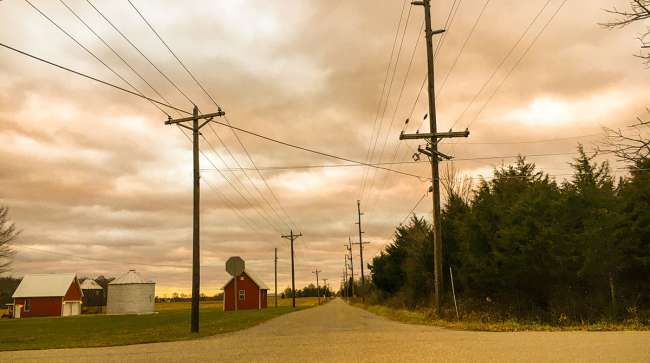Senior Reporter
House Panel Considers Rural Energy Aid Bill

[Stay on top of transportation news: Get TTNews in your inbox.]
Legislation meant to assist rural electric cooperatives was scheduled for consideration by the U.S. House Energy and Commerce Committee on Sept. 9.
The Expanding Access to Sustainable Energy (EASE) ACT, sponsored by Rep. Tom O’Halleran (D-Ariz.), would direct the Department of Energy to provide grants and assistance to cooperatives based in rural areas. Such support from the agency would guide the development of storage and microgrid projects that use renewable energy.
The EASE Act was among more than three dozen measures the Energy and Commerce Committee considered. During the hearing, Rep. Frank Pallone (D-N.J.), the panel’s chairman, said the bill would “expand access to sustainable energy.”

O'Halleran
“As our nation continues to suffer from the devastating impacts of the COVID-19 pandemic, this committee continues its work to provide real relief to the American people,” the chairman said.
The measure garnered bipartisan support, and it was included in a climate change proposal House Democrats published recently.
“Energy storage technology is increasingly being lauded as a solution to increasing energy efficiency, limiting carbon emissions and saving money for consumers,” O’Halleran said during the bill’s introduction last year. “However, as our energy market continues to evolve, it is important that the needs of our rural energy providers are not overlooked.”
Rep. Markwayne Mullin (R-Okla.), a co-sponsor, added, “Renewable energy is an important part of the all-of-the-above energy strategy our country needs and being able to store the renewable energy produced will help us to utilize more of it. Rural areas like my district need to be able to keep up with technology and have the resources necessary to invest in renewable energy storage. I am proud to join my colleagues in introducing this legislation that will help ensure rural communities are not left behind.” Other sponsors include Reps. Conor Lamb (D-Pa.) and Ralph Norman (R-S.C.).
Gov-RURAL by Transport Topics on Scribd
The House Select Committee on the Climate Crisis’ recent comprehensive report proposed the adoption of resilient infrastructure investments and aspects of the Green New Deal environmental overhaul outlook.
Sens. Amy Klobuchar (D-Minn.) and Jerry Moran (R-Kansas), members of the Commerce Committee, which has jurisdiction over trucking and freight policies, introduced similar legislation in the upper chamber.
“We need a comprehensive energy strategy that puts America back in control of our energy supply — one that creates jobs, reduces our dependence on foreign oil, keeps energy costs affordable for all Americans and responds to the challenges of global climate change,” Klobuchar said last year.
“Kansas is a nationwide leader in renewable energy, and an increased capacity for energy storage is imperative to grow and capitalize on our renewable energy potential,” Moran added.
Groups such as the National Rural Electric Cooperative Association have endorsed the measure. Electric cooperatives support about 42 million people across communities, schools, farms and businesses.
Last month, Senate Democrats unveiled a report calling for the reduction of U.S. emissions to achieve 100% global net-zero emissions no later than 2050, and increase spending on climate programs to at least 2% of gross domestic product per year.
“The climate crisis is not some distant threat. It is here now, and it will be catastrophic if we don’t strike back immediately,” said Minority Leader Chuck Schumer (D-N.Y.) on Aug. 25. “Over the next few decades, climate change will affect every part of American life: our health, our economy, our national security, even our geography.”
Want more news? Listen to today's daily briefing:
Subscribe: Apple Podcasts | Spotify | Amazon Alexa | Google Assistant | More




